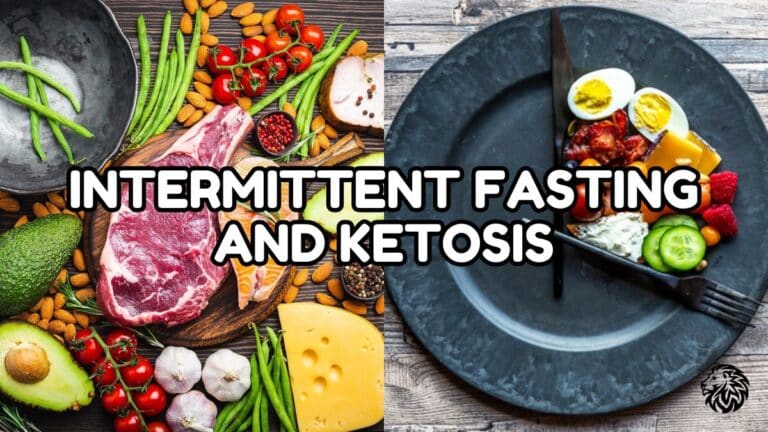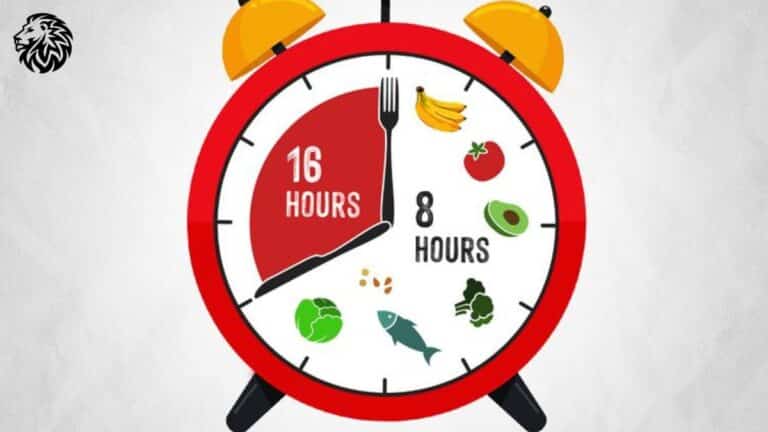In the last few years, a lot of people have started to swear by intermittent fasting—it’s like the new diet darling on the block. Think of it as the less fussy cousin of traditional diets. Instead of giving you a laundry list of foods you can or can’t eat, it’s more like a friend who suggests when might be the best times to eat. It’s kind of like setting a curfew for your kitchen; some folks say it’s a breeze to fit into their busy lives and rave about dropping pounds because of it. But, of course, whenever something becomes a hit, there’s bound to be a bit of side-eye about whether it’s actually a good idea or just a passing trend.
Let’s break down what intermittent fasting really means—it’s like having an on-and-off relationship with your food. You don’t have to break up with your favorite meals; it’s more about scheduling your dates with them. Some people choose to eat within a certain time window each day, while others might only eat lightly a couple of days a week, and normally the rest of the time. It’s pretty straightforward, and you don’t need to revamp your pantry to make it work.
Now, it’s not just your neighbor or coworker who’s into this—it’s got the celebrity stamp of approval too, which you know means it’s getting a ton of buzz. They’re not just talking about trimming your waistline either; some science suggests it could help your body run smoother for longer.
But not everyone’s convinced. There are whispers and worries about whether it’s a good idea to play with your eating schedule like that, especially in the long run. Could it mess with your body or your mind? That’s the big question. Is intermittent fasting a keeper, or is it just the diet world’s latest fling that might leave us with a bit of a heartache?
So, here we are, ready to dive deep into the world of intermittent fasting. We’re going to sift through the science, weigh the pros and cons, and figure out if it’s a smart choice for your health and your waistline. If you’re thinking about giving it a try, hang tight. We’re on a mission to find out if intermittent fasting is as good as its hype.
Understanding Intermittent Fasting

Intermittent fasting (IF) is more than just a modern dietary trend; it is a practice with ancient roots and varied applications. At its core, IF involves voluntary abstinence from food and drinks for a set period. This practice has been adapted into several methods, each with its own rules and schedules to suit different lifestyles and goals.
Definition and Primary Types of IF
Intermittent fasting isn’t a one-size-fits-all regimen but a framework that encompasses various eating patterns. All forms of IF are based on the division of time between periods of fasting and non-fasting. Here are some of the primary types:
- Time-Restricted Feeding: This method involves condensing the daily eating window to a certain number of hours. One of the most popular variants is the 16/8 method, where individuals fast for 16 hours and eat all their meals within an 8-hour window. For example, one might eat between 12 p.m. and 8 p.m. and fast from 8 p.m. to 12 p.m. the next day.
- Alternate-Day Fasting: This approach alternates between days of regular eating and days of either complete fasting or significant calorie reduction (typically around 500 calories). It allows for more flexibility and can be less daunting than a continuous fast.
- 5:2 Method: The 5:2 method, also known as the Fast Diet, involves eating normally for five days of the week and restricting calorie intake to about 500-600 calories on the other two days, which are not consecutive.
These methods are among the most popular, but there are other variations, including 24-hour fasts once or twice a week, known as Eat-Stop-Eat, and spontaneous meal skipping, where you skip meals when convenient.
Brief History and Cultural Significance of Fasting
The practice of fasting has deep historical and cultural roots spanning thousands of years. Virtually every major religion incorporates some form of fasting as a means of spiritual reflection, penance, or preparation for rituals. For instance, Muslims observe Ramadan, a month-long period of fasting from sunrise to sunset; Christians may fast during Lent; and Jews observe fasts on Yom Kippur and other holidays. Beyond religious contexts, fasting has been employed for health reasons since ancient times by civilizations such as the Greeks and Romans, who believed it could cleanse the body and spirit.
In modern times, the interest in fasting for health and longevity has been rekindled, with intermittent fasting emerging as a secular practice focused on physical health and weight management. The shift from fasting as primarily a spiritual or cleansing ritual to a health and lifestyle choice marks a significant cultural evolution in the practice of abstaining from food.
The Science of Intermittent Fasting and Weight Loss

While the concept of intermittent fasting may seem straightforward, the underlying physiological mechanisms are complex and multifaceted. Research into intermittent fasting has revealed several ways in which this practice can influence weight loss and metabolic health.
Mechanisms of Weight Loss Through IF
- Caloric Deficit: One of the primary reasons intermittent fasting can lead to weight loss is the creation of a caloric deficit. By limiting the eating window, many people naturally consume fewer calories than they would eating throughout the day, leading to weight loss over time.
- Hormonal Changes: Intermittent fasting can influence several key hormones related to hunger and metabolism.
- Insulin Sensitivity: Fasting periods help lower insulin levels, which in turn can improve insulin sensitivity. Enhanced insulin sensitivity allows the body to use glucose more effectively, reducing the risk of type 2 diabetes and aiding in weight loss.
- Increased Norepinephrine: Fasting can stimulate the sympathetic nervous system, leading to an increase in norepinephrine, a hormone and neurotransmitter. This can boost metabolism and increase the breakdown of body fat for energy.
- Effects on Metabolic Rate: There’s some evidence to suggest that short-term fasting may increase metabolic rate, potentially aiding in weight loss. However, long-term fasting or severe calorie restriction might have the opposite effect, slowing metabolism—an adaptive response to conserve energy.
Review of Key Studies and Their Findings
- Short-Term vs. Long-Term Effects: Research on intermittent fasting shows that it can be effective for weight loss in the short term. However, there’s less clarity on its long-term effects. Some studies suggest that the weight loss benefits of IF can persist over time, while others indicate that individuals may regain weight after discontinuing the practice, similar to other dieting methods.
- Comparison with Other Weight Loss Methods: When matched for calorie reduction, intermittent fasting seems to be as effective as continuous calorie restriction for weight loss. However, some people may find IF easier to adhere to because it doesn’t require daily calorie counting or food restrictions. A few studies also suggest that intermittent fasting might have advantages in retaining muscle mass during weight loss compared to continuous calorie restriction.
It’s important to note that while the science behind intermittent fasting is promising, more research is needed, especially regarding its long-term effects and sustainability. Additionally, individual responses to IF can vary greatly, and what works for one person may not work for another.
Safety Considerations of Intermittent Fasting

While intermittent fasting can be a safe and effective method for weight loss for many individuals, it’s not without potential risks and side effects. Understanding these concerns is crucial for anyone considering IF as a weight loss strategy.
Potential Risks and Side Effects
- Nutrient Deficiencies: Fasting periods can potentially lead to insufficient intake of essential nutrients if not carefully planned. This is particularly a risk if the eating periods are not well-balanced or if the individual is not consuming a variety of nutrient-dense foods.
- Disordered Eating Patterns: Intermittent fasting can sometimes trigger disordered eating behaviors, especially in individuals with a history of eating disorders. The rigid rules around eating times might lead to an unhealthy preoccupation with food and eating, binge eating during non-fasting periods, or excessive restriction.
- Effects on Mental Health: For some, fasting can be a psychological stressor and may exacerbate issues like anxiety or depression. The hunger and deprivation experienced during fasting periods can affect mood, focus, and overall mental well-being.
- Impact on Physical Performance: Intermittent fasting might lead to reduced energy levels, particularly during fasting periods. This can impact physical performance, making it challenging for athletes or those engaged in intense physical activities to maintain their usual routines.
Populations for Whom IF Might Be Contraindicated
- Individuals with Certain Medical Conditions: People with conditions like diabetes, low blood pressure, or a history of eating disorders should be cautious. Fasting can disrupt blood sugar levels, exacerbate eating disorder behaviors, and lead to other health complications.
- Pregnant or Breastfeeding Women: Adequate nutrition is essential for fetal development and milk production. Fasting can compromise nutrient intake and is generally not recommended during pregnancy or breastfeeding.
- Children and Adolescents: Growing bodies need a steady supply of nutrients. Fasting can interfere with growth and development and may not provide the necessary energy for active and growing children and teenagers.
Recommendations from Health Organizations and Experts
Health organizations and medical experts generally recommend approaching intermittent fasting with caution. The consensus is that while IF can be safe for many adults, it’s not suitable for everyone, and it’s not a magic bullet for weight loss. Here are some common recommendations:
- Consult a Healthcare Professional: Before starting any new diet regimen, including intermittent fasting, it’s advisable to consult a healthcare professional, particularly for individuals with pre-existing health conditions or special nutritional needs.
- Monitor Health and Well-being: Pay attention to how your body and mind respond to fasting. Any adverse reactions or feelings of ill health should be taken seriously, and fasting should be discontinued if necessary.
- Adopt a Balanced Approach: Ensure that during eating periods, you consume a balanced diet rich in nutrients to offset any potential deficiencies. Avoid the temptation to overeat during non-fasting periods.
- Personalization: Recognize that there’s no one-size-fits-all approach to intermittent fasting. What works for one person might not work for another, and it’s essential to find a pattern that fits individual health needs and lifestyle.
In summary, while intermittent fasting can be a safe weight loss tool for many, it’s crucial to approach it thoughtfully, considering the potential risks and contraindications. Proper planning, mindful execution, and a focus on overall health rather than just weight loss can help mitigate risks and ensure a safe fasting experience.
Best Practices for Safe Intermittent Fasting

To maximize the benefits and minimize the risks of intermittent fasting, it’s important to approach it with a mindful and informed strategy. Here are some best practices to consider for those interested in exploring IF as a weight loss method:
Gradual Initiation into IF
Jumping into an aggressive fasting routine can be a shock to the system. Instead, it’s often more sustainable to ease into the fasting pattern gradually. For instance, start with a shorter fasting window and progressively extend it, or begin with fasting a couple of days a week before trying more structured methods like the 5:2 or alternate-day fasting.
Maintaining a Balanced and Nutritious Diet During Eating Periods
What you eat is just as important as when you eat. Ensure that your meals are well-balanced, focusing on whole foods, lean proteins, healthy fats, and plenty of fruits and vegetables. This helps provide your body with the necessary nutrients and prevents nutrient deficiencies.
Staying Hydrated
During fasting periods, it’s crucial to stay hydrated. Water is the best choice, but other beverages like black coffee and tea are generally considered acceptable during fasting as long as they don’t contain added sugars or milk.
Monitoring Physical and Mental Health Responses
Listen to your body and be aware of how intermittent fasting affects your physical and mental health. If you experience negative symptoms like extreme fatigue, dizziness, irritability, or signs of disordered eating, it’s important to reassess your fasting regimen or seek professional advice.
Consulting Healthcare Professionals Before Starting IF
Before embarking on intermittent fasting, especially for those with pre-existing health conditions, it’s advisable to consult a healthcare professional. They can provide personalized advice and help monitor your health throughout the process.
Remember that intermittent fasting is not a one-size-fits-all solution, and it’s not the only way to achieve weight loss or improve health. It’s essential to find a sustainable and healthy approach that works for you, aligns with your lifestyle, and doesn’t compromise your well-being. With the right preparation and mindset, intermittent fasting can be a safe and effective tool for weight loss and overall health.
Personalizing Intermittent Fasting

One of the keys to successfully implementing intermittent fasting is recognizing that it should be adapted to fit individual needs, lifestyles, and preferences. Here’s how to personalize the IF experience:
Tailoring IF to Individual Lifestyles and Preferences
- Work and Life Schedule: Choose a fasting schedule that aligns with your daily routine. For instance, if you’re not a breakfast person, you might find it easier to skip morning meals and start eating later in the day.
- Exercise Habits: Align your eating windows with your workout times. Some prefer to exercise in a fasted state, while others may need a meal before working out for energy.
- Social and Family Commitments: Consider your social life and family meals when planning your eating windows to ensure that fasting doesn’t interfere with important social interactions.
Importance of Listening to One’s Body
- Hunger Cues: Learn to differentiate between true hunger and habitual eating. If you’re genuinely hungry outside your eating window, it might be a sign that you need to adjust your fasting schedule.
- Energy Levels: Pay attention to your energy throughout the day. Persistent fatigue might indicate that you need to modify your fasting regime.
- Overall Well-being: Any signs of deteriorating physical or mental health should be taken seriously, and adjustments to your fasting routine should be made accordingly.
Adjusting IF Patterns for Sustainability
- Flexibility: Be open to changing your fasting schedule as needed. Life isn’t static, and your fasting routine shouldn’t be either.
- Incremental Changes: If you’re struggling with your current fasting pattern, try making small, incremental changes instead of drastic ones.
- Regular Re-evaluation: Periodically reassess your fasting routine to ensure it continues to align with your goals, health, and lifestyle. What works for you now may not work in the future, and that’s okay.
- Avoiding Rigidity: Avoid becoming too rigid with your fasting routine. Being overly strict can lead to stress and resentment, making the practice unsustainable in the long term.
By personalizing intermittent fasting to fit your unique lifestyle, preferences, and body’s signals, you increase the likelihood of it being a positive, sustainable, and effective approach to weight loss and overall health.
Conclusion
Intermittent fasting has emerged as a popular and potentially effective method for weight loss, supported by various scientific studies. By creating a caloric deficit and inducing hormonal and metabolic changes, IF can contribute to weight loss and offer additional health benefits. However, it’s not devoid of risks, and its safety and efficacy can vary greatly depending on the individual.
The one-size-fits-all approach rarely works in the realm of diet and nutrition, and this is particularly true for intermittent fasting. Individual differences in lifestyle, health status, and personal preferences play a significant role in determining whether IF is a suitable and sustainable weight loss method. Personalizing the approach to intermittent fasting — taking into account these individual factors — is crucial for its success and safety.
Ultimately, the decision to try intermittent fasting should be made after careful consideration of one’s personal health, lifestyle, and preferences. It’s essential to weigh the potential benefits against the risks and to consider alternatives that might be more suitable. Consulting with healthcare professionals, listening to one’s body, and being open to adjusting or abandoning the method if it doesn’t serve one’s well-being are critical steps. In the journey toward better health and weight management, the most successful path is one that is informed, adaptable, and individually tailored.
References and Further Reading
- Johns Hopkins Medicine. (n.d.). Intermittent fasting: What is it, and how does it work? Retrieved from https://www.hopkinsmedicine.org/health/wellness-and-prevention/intermittent-fasting-what-is-it-and-how-does-it-work
- Link, R. (n.d.). Intermittent fasting 101 — The ultimate beginner’s guide. Healthline. Retrieved from https://www.healthline.com/nutrition/intermittent-fasting-guide
- Mayo Clinic Staff. (n.d.). Intermittent fasting: Does it have health benefits? Mayo Clinic. Retrieved from https://www.mayoclinic.org/healthy-lifestyle/nutrition-and-healthy-eating/expert-answers/intermittent-fasting/faq-20441303
- Fung, J. (2018, June 29). Intermittent fasting: Surprising update. Harvard Health Blog. Retrieved from https://www.health.harvard.edu/blog/intermittent-fasting-surprising-update-2018062914156
- Link, R. (n.d.). What is intermittent fasting? Explained in human terms. Healthline. Retrieved from https://www.healthline.com/nutrition/what-is-intermittent-fasting
- Palsdottir, H. (n.d.). Intermittent fasting: A detailed guide. Medical News Today. Retrieved from https://www.medicalnewstoday.com/articles/322293
- WebMD. (n.d.). Intermittent fasting. Retrieved from https://www.webmd.com/diet/a-z/intermittent-fasting
- Mattson, M. P., Longo, V. D., & Harvie, M. (2017). Impact of intermittent fasting on health and disease processes. Ageing Research Reviews, 39, 46-58. Retrieved from https://www.ncbi.nlm.nih.gov/pmc/articles/PMC3680567/







